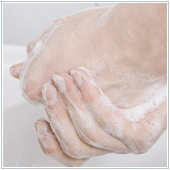 How many times do you wash your hands each day? Whatever the number is, it may not be enough!
How many times do you wash your hands each day? Whatever the number is, it may not be enough!
December is the month designated to remind us all of the importance of handwashing. According to the Centers for Disease Control, washing your hands is the single most effective way to prevent sickness. By washing your hands, you can prevent illness as simple as a cold or flu, or you may prevent the development of more serious diseases like hepatitis A, meningitis and infectious diarrhea.
According to the CDC, 80% of germs are spread by handshake. While some people are beginning to wonder if we should consider a business world without handshakes, others are touting the importance of something basic – good, old-fashioned hand washing.
Just think… how many illnesses could you have prevented by washing your hands more?
Read on to make sure you’re familiar with the top five rules of handwashing. Following them could be the key to preventing illness this flu season… and year-round!
#1: Wash your hands when they are dirty and when they are not.
Most people know that they should wash their hands after using the bathroom, cleaning up after pets or changing diapers. But some people don’t think about the less obvious times. You should also wash your hands after handling money, using the office copy machine or pushing buttons in the elevator.
#2: Always wash your hands before eating.
Even if your hands look and feel clean, you never know what germs have made their way onto your skin.
#3: Do not cough or sneeze into your hands.
According to Dr. Will Sawyer, Infection Prevention Specialist, the importance of not coughing and sneezing into your hands cannot be understated. In fact, he includes this rule in his 4 Principles of Hand Awareness.
#4: Do not put your fingers into your eyes, nose or mouth.
The “T Zone” is the mucous membranes of the eyes, nose and mouth. It’s considered to be the #1 way that diseases enter our bodies. If you never touch the T Zone with a contaminated finger, you will not take the risk of infecting yourself.
#5: Practice correct hand washing.
Make sure you use warm water and rub your hands together for at least 15 seconds. An easy way to determine if you’ve spent enough time washing is to sing “Happy Birthday.” After washing, avoid recontamination by using a towel to turn off the faucet.
The statistics on hand washing are frightening. Research shows that only 2/3 of adults in the US wash their hands after using the bathroom and less than 1/2 of Americans wash hands after cleaning up after pets. 1 in 3 E.coli occurrences are caused by not washing hands before handling food.
Don’t be a statistic! We challenge you to do your part to prevent illness this flu season by washing your hands more often and more effectively than you have in the past. If you have any questions about what else you can be doing to prevent illness, please feel free to get in touch with your community health care experts at [company_short]. We are always available by phone at [phone_main]. From all of us here, we wish you a happy and healthy holiday season!
 We’ve all seen them and many of us have struggled with them ourselves. Striae, more commonly known as stretch marks, are frequently seen in men and women of all shapes, sizes and ages. The unwelcome marks typically develop on the abdomen, breasts, hips, thighs and upper arms. These days, they are a popular topic in health and beauty circles, especially among women who are searching for ways to banish them forever.
We’ve all seen them and many of us have struggled with them ourselves. Striae, more commonly known as stretch marks, are frequently seen in men and women of all shapes, sizes and ages. The unwelcome marks typically develop on the abdomen, breasts, hips, thighs and upper arms. These days, they are a popular topic in health and beauty circles, especially among women who are searching for ways to banish them forever. Anxiety, stress, depression… we’ve all experienced one or all of them at some time or another. Especially around the holiday season, the causes can vary. You might be under tight deadlines at work, worried about finances, experiencing issues at home or concerned about a loved one with an illness. Whatever the case, experiencing some of the following
Anxiety, stress, depression… we’ve all experienced one or all of them at some time or another. Especially around the holiday season, the causes can vary. You might be under tight deadlines at work, worried about finances, experiencing issues at home or concerned about a loved one with an illness. Whatever the case, experiencing some of the following 
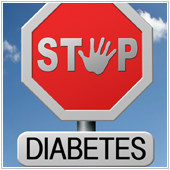 Diabetes is a group of diseases characterized by high blood glucose levels resulting from the body’s inability to properly produce and/or use insulin. You’ve definitely heard of it before, but you probably don’t realize quite how prevalent it is. The numbers are staggering!
Diabetes is a group of diseases characterized by high blood glucose levels resulting from the body’s inability to properly produce and/or use insulin. You’ve definitely heard of it before, but you probably don’t realize quite how prevalent it is. The numbers are staggering!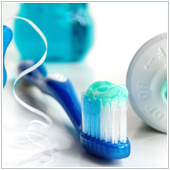 According to the
According to the 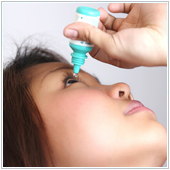 Many of you work hard to keep yourselves and your families healthy. You put in time at the gym, avoid chocolate cake, wear sunscreen and make an effort to get eight hours of sleep each night.
Many of you work hard to keep yourselves and your families healthy. You put in time at the gym, avoid chocolate cake, wear sunscreen and make an effort to get eight hours of sleep each night.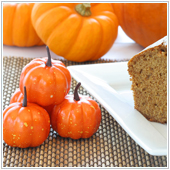 The quintessential fall months of October and November are upon us and you know what that means- changing leaves, cooler weather and pumpkins galore! There will be pumpkin lattes, pumpkin pies, pumpkin ravioli and more. There’s no question that pumpkin season is very tasty, but what does it mean for your health?
The quintessential fall months of October and November are upon us and you know what that means- changing leaves, cooler weather and pumpkins galore! There will be pumpkin lattes, pumpkin pies, pumpkin ravioli and more. There’s no question that pumpkin season is very tasty, but what does it mean for your health? For the 108 million Americans who drink coffee everyday, there’s good news! New research provides even more proof that there are health benefits in your morning cup o’ joe. Coffee has recently been linked to everything from fat burning to less cavities and a lower risk factor for multiple diseases.
For the 108 million Americans who drink coffee everyday, there’s good news! New research provides even more proof that there are health benefits in your morning cup o’ joe. Coffee has recently been linked to everything from fat burning to less cavities and a lower risk factor for multiple diseases.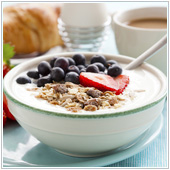 In recent years, we have all been hearing it more and more – breakfast is the most important meal of the day. While adults need the morning nutrition to fuel their workday, the importance of eating breakfast is even higher for children.
In recent years, we have all been hearing it more and more – breakfast is the most important meal of the day. While adults need the morning nutrition to fuel their workday, the importance of eating breakfast is even higher for children.